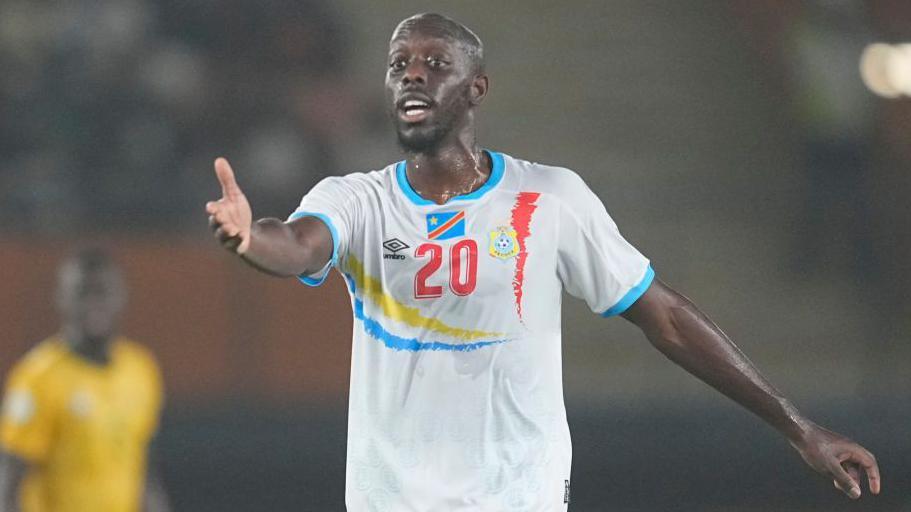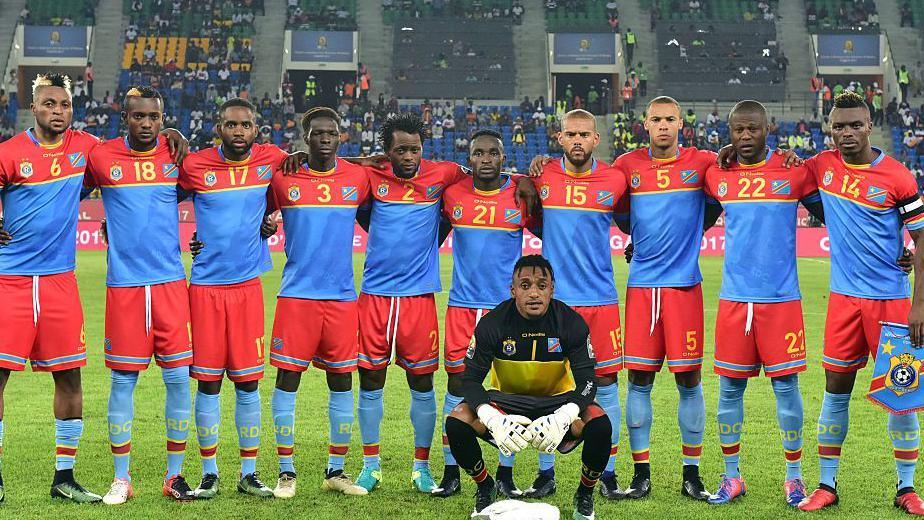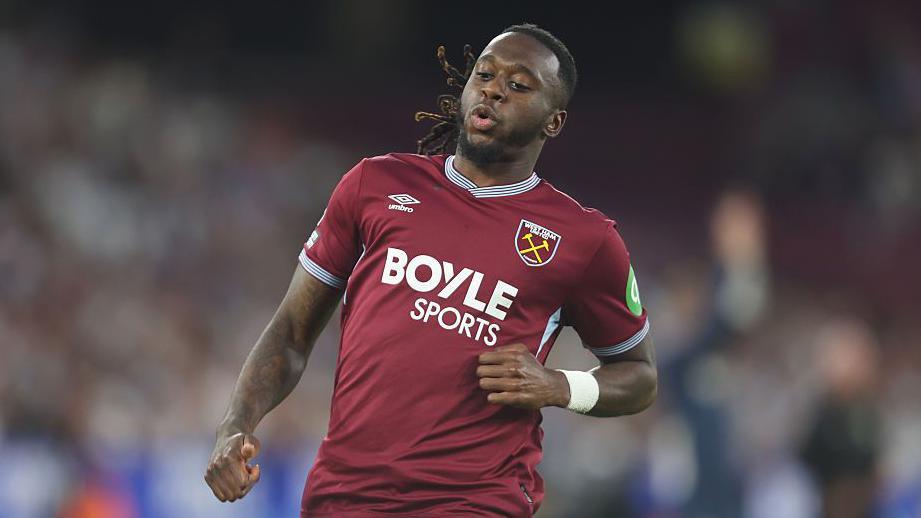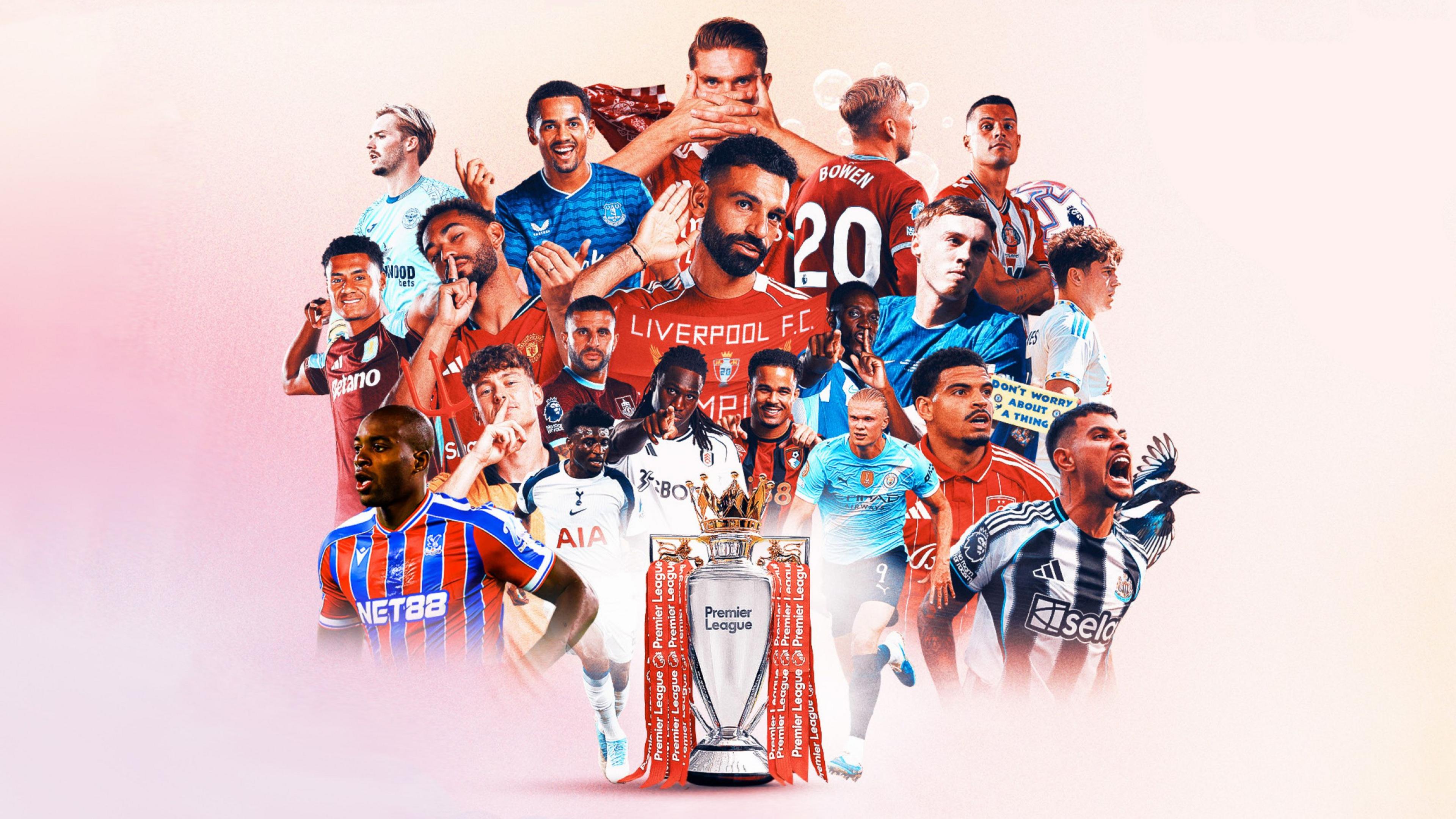The ex-Peterborough man helping World Cup dreams come true

Gabriel Zakuani was part of the negotiations to get Yoane Wissa (pictured) to declare for DR Congo
- Published
International football might seem simple - you are born and raised in a country, and that is who you play for.
But in an increasingly globalised world it does not always pan out like that - and few people know that better than former Peterborough defender Gabriel Zakuani.
Born in Kinshasa, the capital of the Democratic Republic of the Congo back when the country was called Zaire, he moved to England as a child.
After retiring as a player, one of his main jobs now is to help identity footballers from other countries who could play for DR Congo and then try to recruit them.
There is a large Congolese diaspora around Europe, including a number of high-profile football players, who left the country for Europe over the last four decades fleeing political and economic instability.
Recent squads have had a host of players who represented England, France, Belgium and Switzerland at youth level.
Among the biggest-name converts are Premier League players Aaron Wan-Bissaka and Yoane Wissa.
The Leopards play Cameroon on Thursday in a World Cup play-off semi-final - and feature in the Africa Cup of Nations, which starts next month.
Zakuani - who speaks eight languages - told BBC World Service about his role as a technical consultant with DR Congo.
Zidane chooses Algeria
A role that started informally in playing days
Zakuani, now 39, moved to England as a child and had a career that saw him play for Leyton Orient, Peterborough and Gillingham among others, before retiring in 2020.
He featured 30 times for DR Congo, where one of his team-mates was then Crystal Palace winger Yannick Bolasie, who was born in France and raised in England.
"It probably started while I was playing," Zakuani said of his talent spotting role.
"So I was doing it, but without a title or a role, because I convinced Yannick Bolasie to come to play when he was getting a sniff at a time when he was really hot for Crystal Palace.
"And there was a sniff of him possibly either playing for England or France - so it's always been there."

Gabriel Zakuani (right) played at three Africa Cup of Nations for DR Congo
'I wish I had a database'
Bolasie has to do his own research to find potential converts.
"I wish I had a database," he said. "It would make my job a lot easier. It's a very gruelling job.
"You have to do your own research and sometimes I'll just go by when I'm watching a game, just look at the surnames and one that may have some sort of Congolese heritage and then start digging into that and then finding out, meeting players outside stadiums and just getting conversations going."
His role involves watching national team players in action and that is sometimes how he finds new recruits.
"I keep an eye on all the English and French-based players and go watch games and see how they're getting on and then send reports back to the manager," he said.
"And while I'm doing that, I try and see who's coming up, who's coming through maybe the U21s of the Premier League clubs or the French clubs or the Belgian clubs and then go and watch them and try and speak to them and end up talking to their parents."
'The key is the parents'

Aaron Wan-Bissaka's parents were born in DR Congo
Zakuani says speaking to the players' parents is often the key.
He talks about West Ham right-back Wan-Bissaka and Burnley centre-back Axel Tuanzebe, both former Manchester United and England Under-21 defenders, and Newcastle striker Wissa.
Wan-Bissaka had said he wanted to play for England and received a call-up in 2019 but had to withdraw from the squad because of injury.
Wissa, then at Lorient, was born and raised in France but never played for them at any level. He has played for DR Congo since 2020.
"That one [Wissa] was the hard one," Zakuani said.
"Wan-Bissaka and even Tuanzebe were all very difficult because the players were 50-50 about it, and then I think the key was the parents.
"You have to visit the parents. The parents would know me from being the captain of the DR Congo, so that makes the conversation a little bit easier.
"Then we just, as Africans are, you're very friendly and you talk about other things. I went there speaking about Wissa joining and Wan-Bissaka joining and then we ended up half of the conversation was about politics and the president.
"It's a very relaxed situation and in the end, it's the player's decision. I think once the parents feel that it's a good environment for their son, I think it makes the conversation a lot easier when I get to the player."
Wan-Bissaka only made his DR Congo debut in September, having failed to get in the England squad ahead of their host of established right-backs.
"I was sure that Wan-Bissaka after last season, because he got West Ham Player of the Year, that he would possibly be in an England squad, and the fact that he wasn't, I think was the key.
"The same for Yoane as well. So, I think the fact they didn't make the squads probably helped my case a lot more."
'Now I think it's a lot easier'
Zakuani says the number of European-born players in the squad mean it is easier to adjust now - and the training facilities and standards are also much higher than in his day.
"I remember the first time I ever went to Congo in 2005 to play for the national team, we were all in our club training kits," he said.
"I was in my Fulham kit and I had Lomana LuaLua on the other side, he had his Newcastle kit on for training, so that just shows how far we've gone.
"Now we have everything, we have all the physios, we have all the equipment needed for the players."
Zakuani says he goes with the new players to their first DR Congo squads.
Language is no longer a big barrier too with many players coming from English and French-speaking countries.
"Before I would say half the team would be local-based players. It's very hard to interact as a lot of them would speak their local dialect," said Zakuani.
"But now I think it's a lot easier and I'm involved in that transition anyway.
"Because a lot of the players do play in Europe and they play at the top level, they've come across each other at some point, so they do know each other slightly, so it's a lot easier now.
"A lot of the players do speak at least two, three languages. I speak eight, so that helps.
"And I think in this role, it helps massively because I could be called to go and speak to someone in Germany next week and I'll be all right doing that, so there's a lot of plusses that I do tick for this role in terms of when it comes to communication."
What do other countries do?
DR Congo are not the only country going down this route.
"Tunisia and Mali recently had former internationals as well doing the same role that Gaby's doing," says Algerian journalist Maher Mezahi.
"They either do that or they follow the Algerian and Moroccan routes where they use scouts or coaches with an academy background and they will actually definitely build out databases.
"So I know Morocco uses four scouts and their sole job is to build a database of players of Moroccan heritage in those specific countries and that's when they'll reach out to players as young as 16, 17. Achraf Hakimi [the Spain-born Morocco captain who players for Paris St-Germain] was contacted when he was that young.
"Algeria have a scout who started out by creating a Facebook page and posting about young players every single day and the Algerian Federation ended up recruiting him."
Players who feature for the country of previous generations, rather than the one they were raised in, include 27-year-old ex-France youth goalkeeper Luca Zidane, son of France legend Zinedine, who was part of Algeria's latest squad.
Cape Verde leaned heavily into their diaspora to build the team that recently clinched a place at their first ever World Cup.
Among them were Dubliner Roberto Lopes, who plays for Shamrock Rovers. He was contacted by then coach Rui Aguas on Linkedin, but initially ignored the approach, because he thought the message was spam in Portuguese.
The 33-year-old has now won 38 caps for the land of his father.
Ghana, who have also qualified for the World Cup, are reportedly looking into calling up Callum Hudson-Odoi and Eddie Nketiah, both of whom have won senior England caps.
Nottingham Forest winger Hudson-Odoi played three times for England in 2019, with Crystal Palace striker Nketiah winning one cap in 2023.
Wilfried Zaha won 33 caps for the Ivory Coast between 2017 and 2013, having previously played twice for England, with players able to switch which country they play for, external under certain conditions.
Related topics
- Published17 October

- Published16 August
